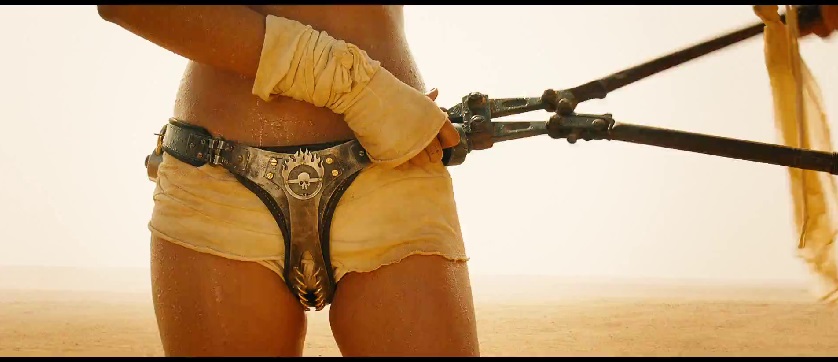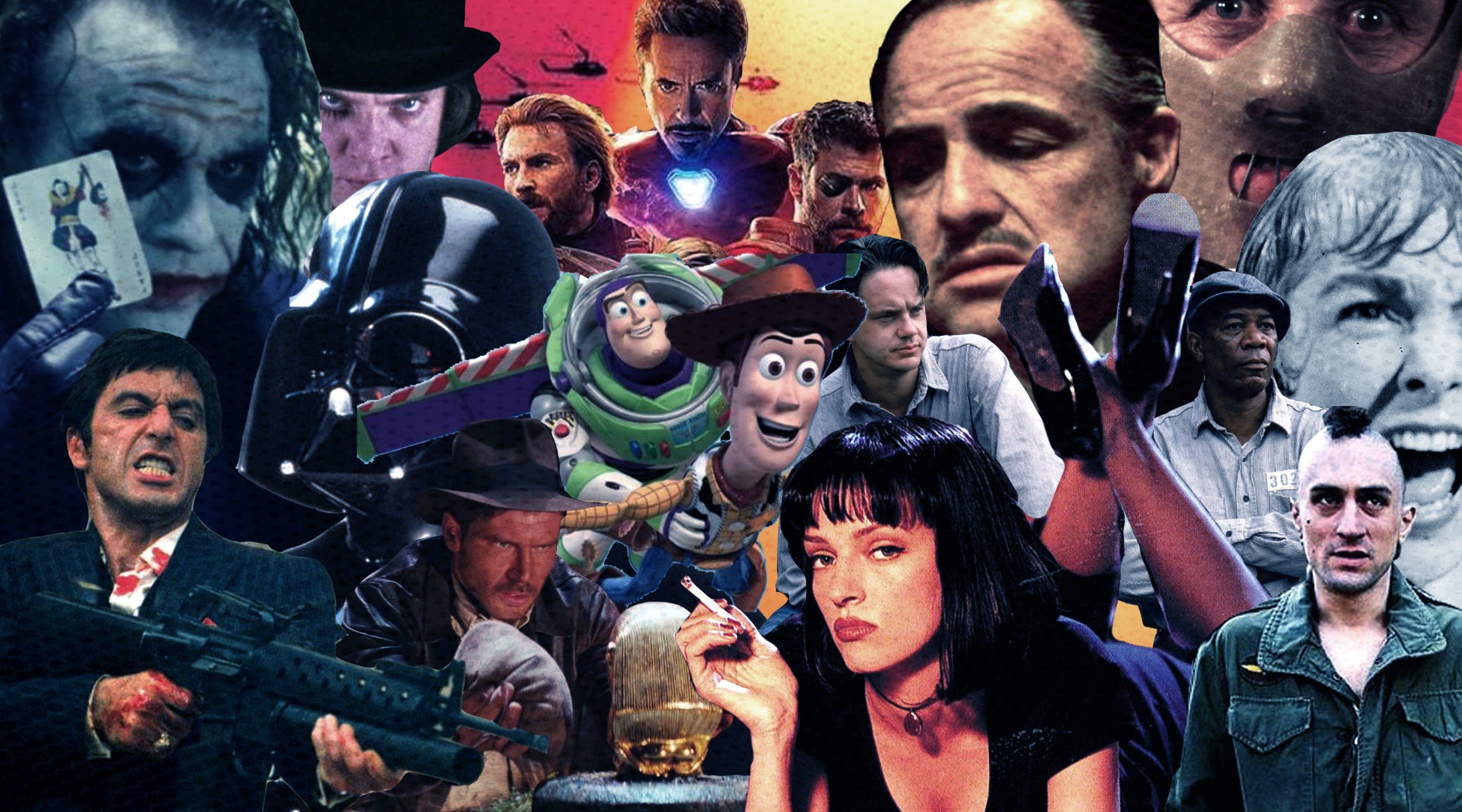
At the end of last year and the beginning of this one, there were a lot of Best Movies of the Decade lists going around online. As always, I was drawn in by the allure of pointlessly ranking movies and I participated, but it got me thinking about the bigger picture. What was the best movie of each decade since the beginning of cinema in the late nineteenth century? Failing that, could I at least offer my favorite film of each decade of the twentieth century, plus the first two decades of the twenty-first? And thus was born this article, an attempt to highlight not necessarily the best movie of each decade, but the one that had the greatest impact on this one particular writer.
1901-1910:
After pioneers like Eadward Muybridge and the Lumiere Brothers paved the way, no filmmaker was more important than Georges Melies, whose innovations in production design and special effects changed everything. Perhaps his most influential movie was A Trip to the Moon (1902), which was way ahead of its time in both subject matter and execution. This is, incidentally, the only decade that was remotely easy to pick a favorite from.
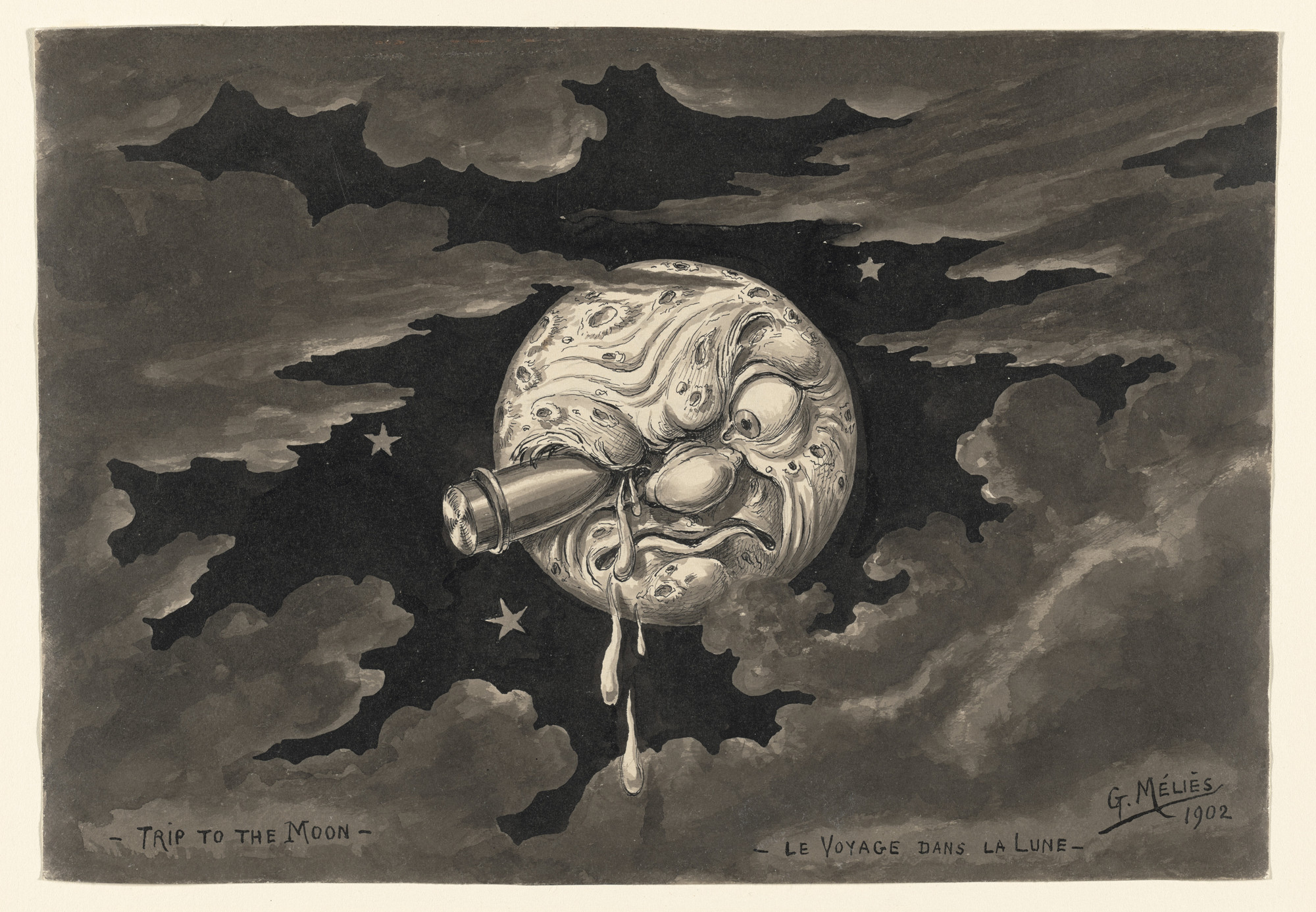
1911-1920:
This decade was also slightly easier to choose from simply by virtue of my not having seen an overwhelming abundance of movies from it. Auteurs like D.W. Griffith (The Birth of a Nation, Broken Blossoms) and Charles Chaplin (One A.M., The Pawnshop) released strong, influential work during this time, but my favorite of this era, The Cabinet of Dr. Caligari (1920), came at the end of the decade. Its production design and tone highly influenced the German Expressionist films of Fritz Lang, who later became one of Hollywood’s best directors of film noir, a genre that itself grew out of German Expressionism. Caligari may have influenced Tim Burton more than any other modern filmmaker, but that is still a hell of a legacy for a movie released 65 years before Burton’s first feature.
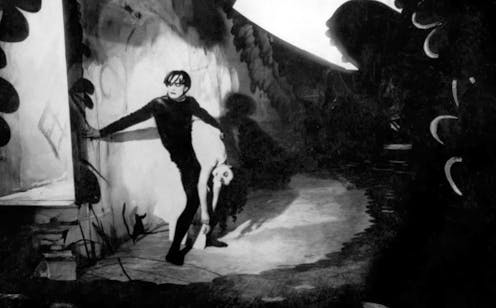
1921-1930:
This is the first decade that presented a real challenge. I had to overlook favorites by Chaplin (The Gold Rush), Lang (Metropolis), and Buster Keaton (The General, Sherlock Jr.), as well as classics like The Phantom of the Opera, Nosferatu, Man with a Movie Camera, The Passion of Joan of Arc, and even the first two Marx Brothers movies. However, the single most important movie of this era, to me, is a seventeen-minute short film directed by Salvador Dali and Luis Bunuel entitled Un Chien Andalou (1929). If you have seen it, you will never forget it.
1931-1940:
Along with most of the films of the Marx Brothers and Frank Capra, this era primarily stands out to me as the golden age of Universal monster movies like Dracula, Frankenstein, The Bride of Frankenstein, Dr. Jekyll and Mr. Hyde, and King Kong (ok, those last two are Paramount and RKO, respectively, but you get the idea). These were the movies I adored growing up (on television; I’m not that old, dammit!), and while I have other favorites from this era, such as The Thin Man, Bringing Up Baby, and The Wizard of Oz, my top pick for the decade is very much adjacent to those wonderful old monster movies. Freaks (1932) was directed by Tod Browning shortly after he brought Bela Lugosi to the silver screen as Dracula, but it was subsequently banned and very difficult to see during the time I was obsessively watching all the other classic horror pictures. This of course only added to its appeal, and when it finally became more widely available, it did not disappoint. Still one of the most chilling, disturbing, and flat-out entertaining horror movies ever made.
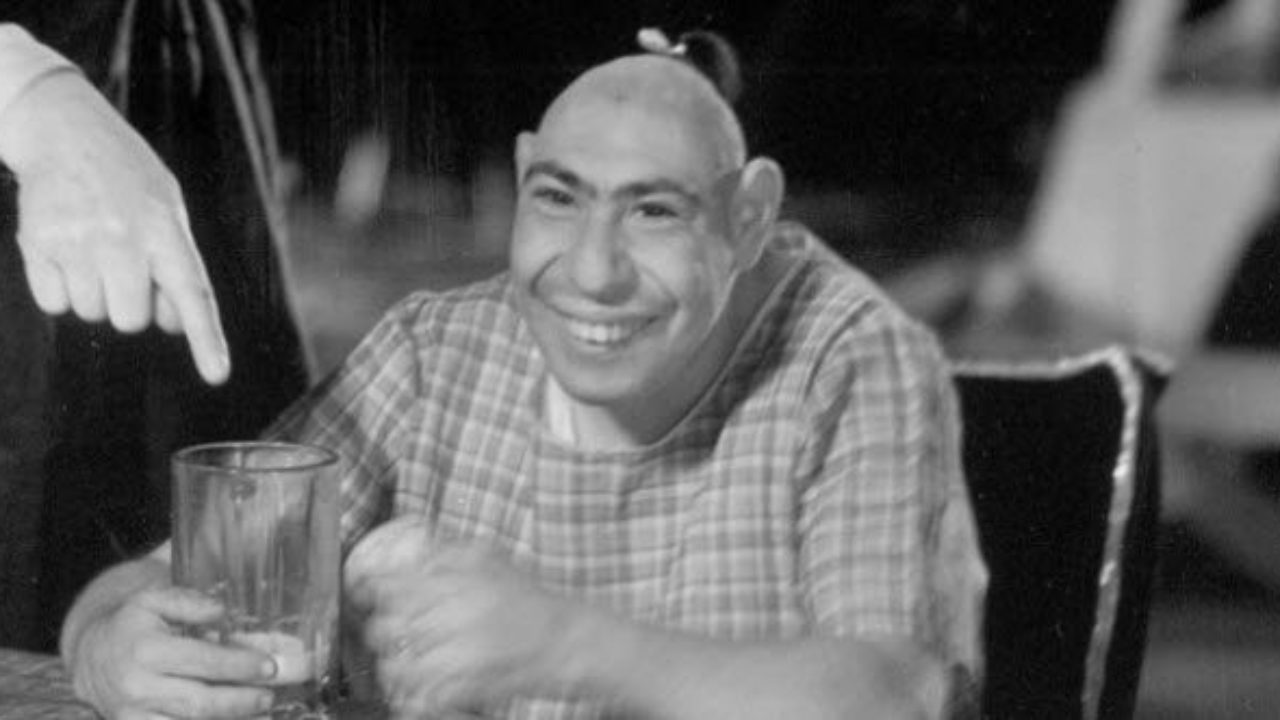
1941-1950:
Citizen Kane, Casablanca, The Third Man, Brief Encounter, and All About Eve are just a handful of the great movies from this era, along with classic film noir like The Maltese Falcon, Double Indemnity, and Scarlet Street, and terrific screwball comedies like His Girl Friday, Sullivan’s Travels, Arsenic and Old Lace, and Ball of Fire. To me, though, this was Alfred Hitchcock’s decade (as was the next, really, though I am committed to singling out any director only one time on this list, for reasons as arbitrary as the list itself). Shadow of a Doubt (1943) was Hitchcock’s favorite of his own films, and I am not inclined to disagree. Rope is a close second for me, and probably my second favorite movie of this decade. Yes, I am choosing both of these underrated Hitchcock movies over Citizen Kane, and I am not even one of those annoying “Citizen Kane is overrated” people.
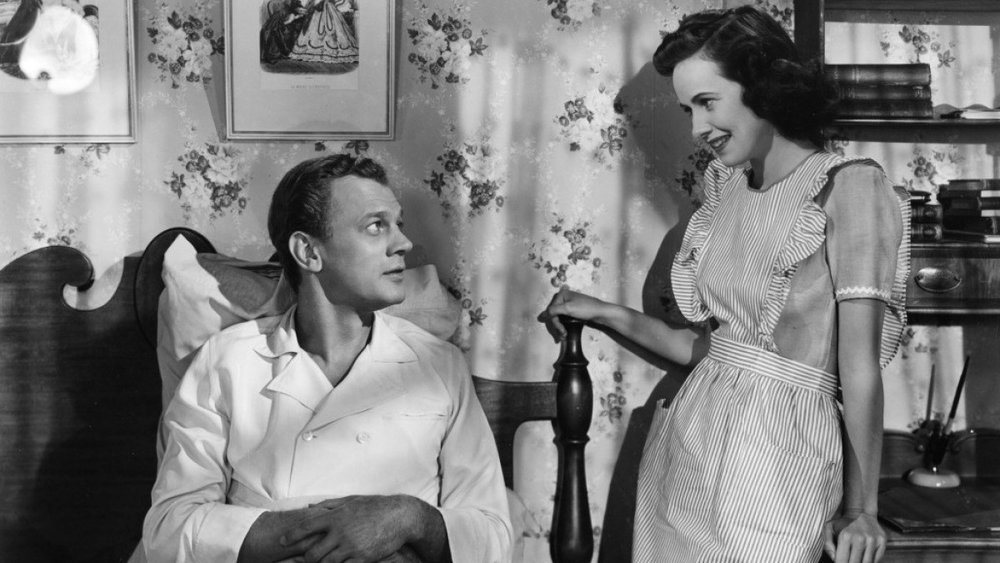
1951-1960:
As a fan of the Universal monster movies of the ’30s and ’40s, I was of course also in love with the sci-fi horror classics of the ’50s, such as Invasion of the Body Snatchers, The Thing from Another World, and The Day the Earth Stood Still, to name just a few of my top favorites. There were also plenty more of Hitchcock’s absolute masterpieces (Rear Window, Strangers on a Train, Vertigo), as well as international classics from the likes of Akira Kurosawa (Ikiru, Seven Samurai, Throne of Blood) and Ingmar Bergman (The Seventh Seal, Wild Strawberries), much of Billy Wilder’s best work (Stalag 17, Some Like It Hot, The Apartment), Charles Laughton’s wonderful, terrifying The Night of the Hunter, and a pair of early classics from a young up-and-comer named Stanley Kubrick (The Killing, Paths of Glory). But I cannot deny that the movie I have personally loved and treasured most from this era is Rebel Without a Cause (1955). James Dean was one of the greatest movie stars of all time, and he proved it in one movie (only starring in two others in his tragically short career), to say nothing of the genius of director Nicholas Ray, another one of the greatest auteurs of this era.
1961-1970:
The choices continue to get harder and harder in this decade that saw Kubrick, my all-time favorite director, release a trio of masterpieces (Lolita, Dr. Strangelove, 2001: A Space Odyssey). There were also my favorite Kurosawa and Bergman films (Yojimbo and Persona, respectively), as well as my favorite paranoid political thriller (The Manchurian Candidate), a sub-genre that would become increasingly popular and relevant in the decade to come, and that barely scratches the surface of the classics from this era. If I were trying to be objective here, 2001 is probably the greatest cinematic achievement of this or any other decade, but my personal favorite movie of the ’60s, the one I have watched over and over and never stopped laughing with, is Mel Brooks’s The Producers (1967), which I would never hesitate to nominate as the funniest movie ever made.
1971-1980:
Quite an incredible decade, with the rise of both Steven Spielberg and Martin Scorsese, Star Wars, a renaissance of great horror movies like The Texas Chain Saw Massacre, Halloween, The Exorcist, Carrie, Alien, and many more, not to mention Chinatown, Network, Annie Hall, Mad Max, Eraserhead, and three of the most important movies to the soon-to-be ’80s Action canon, Dirty Harry, First Blood, and Death Wish. Oh, and a young Francis Ford Coppola made four of the greatest movies of all time in the space of about seven years. Not too shabby. However, I obviously wanted to give the last decade to Kubrick and I can contain that impulse no longer. A Clockwork Orange (1971) is disturbing, funny, gorgeously realized and instantly iconic in its imagery. To me, this movie is the peak of an incredible career unequaled in the canon of great filmmakers.
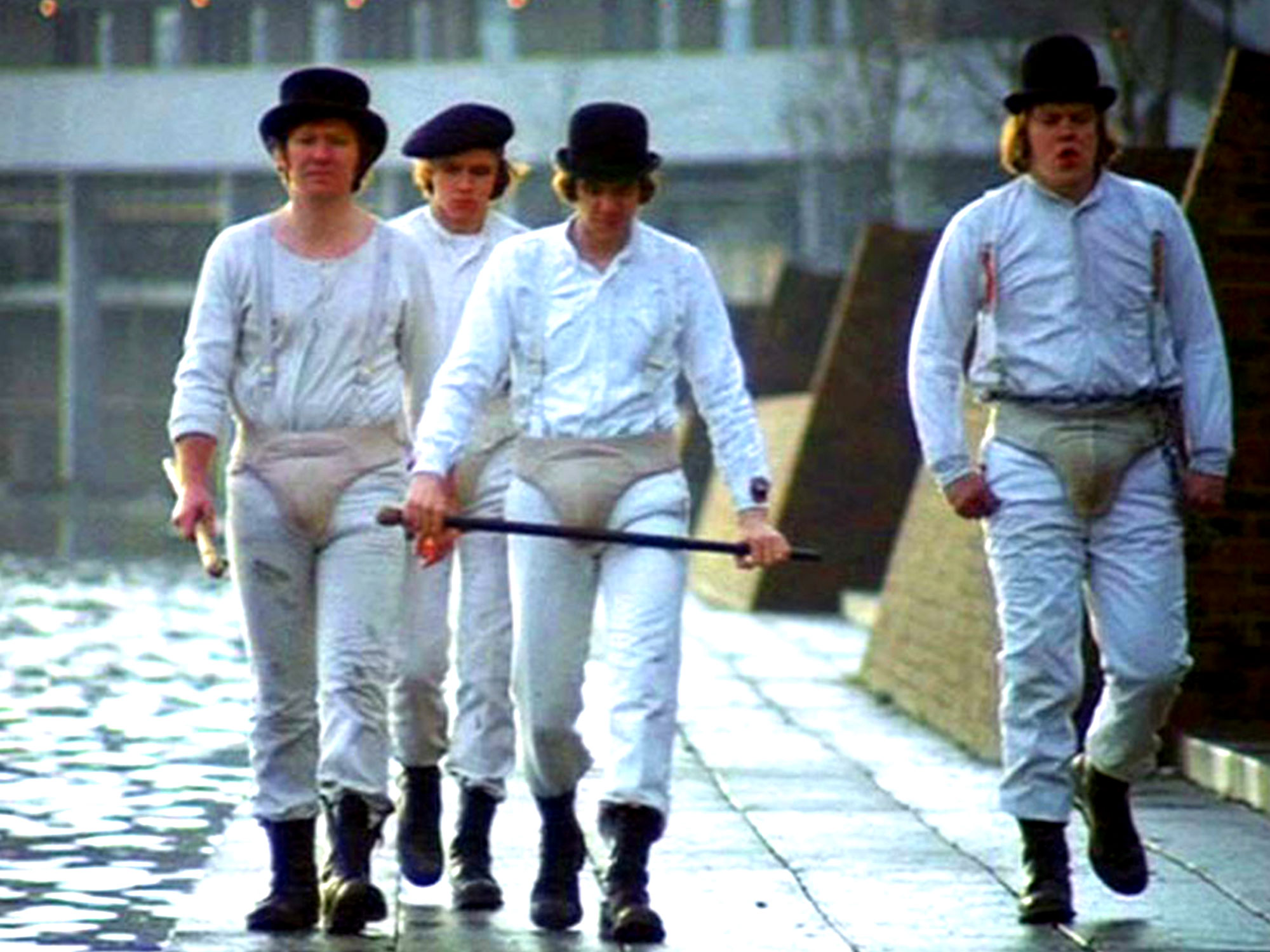
1981-1990:
This almost feels like a cheat, a technicality, as my favorite movie of the decade encompassing the ’80s was actually released in 1990, but that is how I structured this list and I am sticking to it. It regrettably leaves aside the entire â80s Action canon (many of which I truly love, far beyond any kind of ironic appreciation), as well as the beginnings of amazing careers from the likes of Spike Lee, Tim Burton, the Coen Brothers, Steven Soderbergh, and many others, and wonderful work by established filmmakers from the previous decade like Ridley Scott, David Lynch, John Carpenter, Brian De Palma, and the always underappreciated Terry Gilliam, not to mention my favorite animated movie of all time, Akira, which almost singlehandedly introduced anime to the Western world (for better or worse). However, given the time frame of 1981-1990, there is no movie I can rank higher than Goodfellas (1990), my favorite Scorsese, favorite mobster movie, favorite work by De Niro, Pesci, and the list just goes on and on. Ask me on any given day and this is always one of my top two or three favorite movies ever made.

1991-2000:
Probably my favorite decade for movies, even over the ’70s or ’80s, mainly because this was the era in which I really began to pay attention to movies in a big way. It was also the beginning of the careers of Quentin Tarantino, David Fincher, Spike Jonze, Kevin Smith (that one has been more rocky, admittedly, but his early movies at least are strong), and both Andersons, P.T. and Wes. There was also a lot of the best work by those who began working in the ’80s, like Spike Lee, the Coen Brothers, Kathryn Bigelow, Jim Jarmusch, Richard Linklater, and James Cameron, as well as some top-tier personal favorites of mine like Se7en and The Matrix (the latter released in 1999, a particularly strong year for movies), which are the only two that come close to the title of Best Movie of the ’90s for me (unless you count Goodfellas). That title goes to Jurassic Park (1993), a seismic event of a movie unparalleled to this day in its use of both practical and digital effects to create wonder, suspense, and terror. Maybe it is mainly because I was ten years old when it was released, but this is my favorite movie and likely always will be.
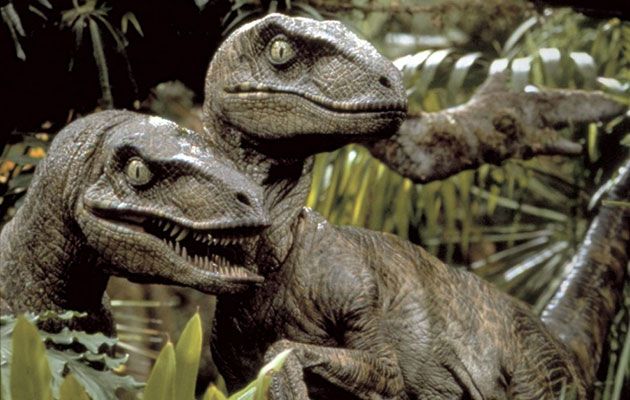
2001-2010:
This is likely to be my most controversial choice, so here it is: Darren Aronofsky’s The Fountain (2006) is my personal favorite movie of this decade. I completely understand those who do not dig it on the same level, and it is clearly a very personal work for Aronofsky. To me, it is utter perfection even in all its emotional and chronological messiness, but the competition is admittedly fierce. In that same year alone, we had Children of Men, Pan’s Labyrinth, The Prestige, and Sarah Polley’s beautiful, heartbreaking Away from Her, among others, and the following year brought us The Assassination of Jesse James by the Coward Robert Ford, There Will Be Blood, and No Country for Old Men, all of which would be strong contenders for the title, in my eyes, and the rest of the decade gave us gems like Eternal Sunshine of the Spotless Mind, Oldboy, Primer, The Dark Knight, Mulholland Dr., Sin City, Adaptation, Donnie Darko, Kill Bill and Inglourious Basterds, Dogtooth, Waking Life, City of God, and Lars von Trier’s greatest movie, Dogville. Nonetheless, I stand by my choice. At least for now.

2011-2020:
This decade is recent enough that I feel no need to recap it to the extent I did the previous one. I am also less conflicted about this one. Though there are many, many other movies I love from the past ten years, for me this one is easy (and borderline undeniable). Mad Max: Fury Road (2015) is the greatest movie of the decade, or even this century so far, really. It is perfect in every way, shiny and chrome.
